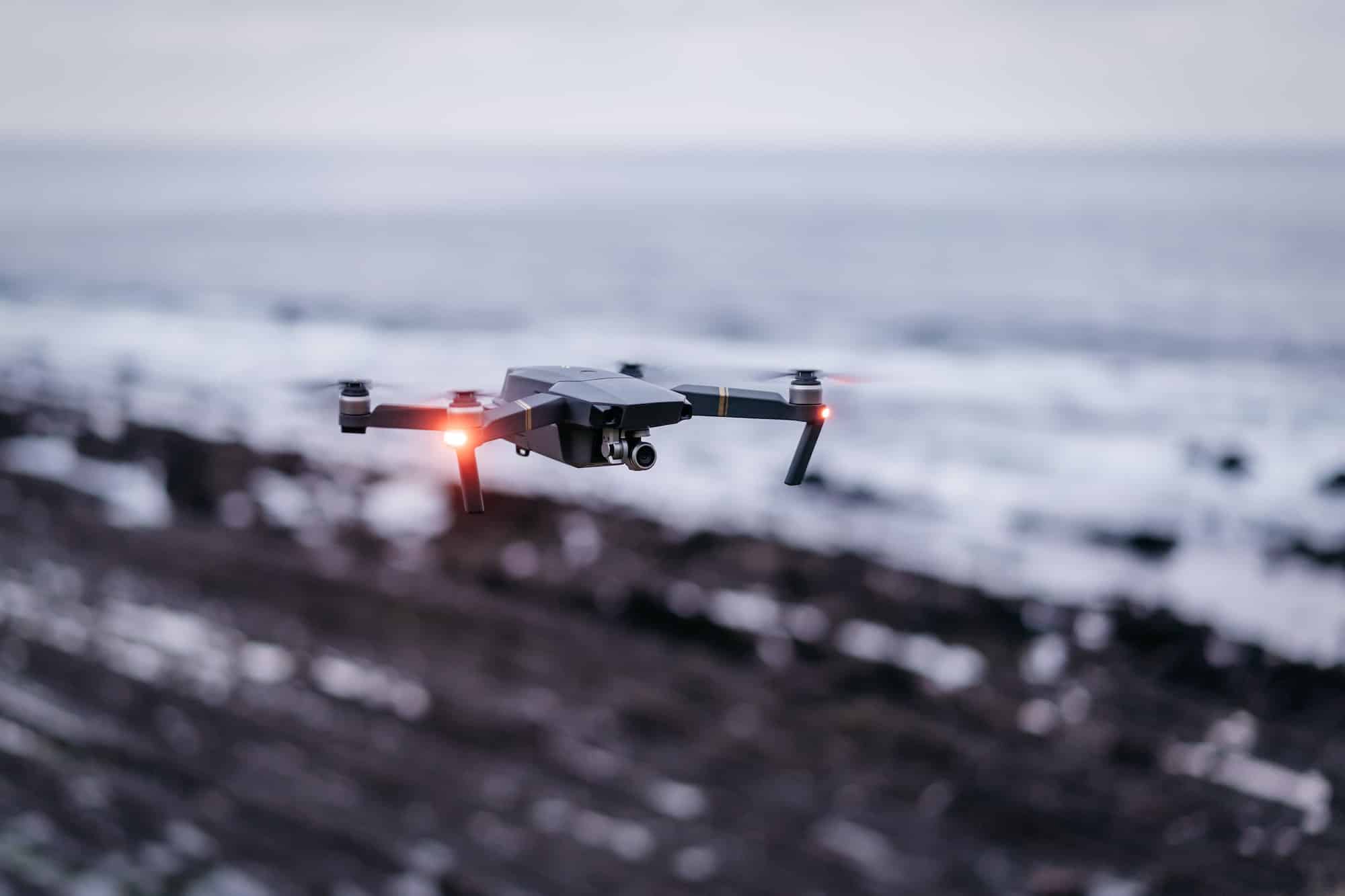What Is the Role of Drones in Streamlining Real Estate Site Inspections?

In the realm of real estate and construction, technology is no longer a mere advantage—it’s an absolute necessity. From virtual reality tours to 3D-printed homes, the industry is embracing the digital age with open arms. Amid these technological advancements, the utilization of drones or Unmanned Aerial Vehicles (UAVs), has become a game-changer. Particularly, in the field of site inspections and property evaluations, drones are utterly revolutionizing the way these processes are conducted.
The Emergence of Drones in Real Estate
The FAA-approved use of drones has opened up new possibilities for various industries, notably real estate. These high-tech devices are equipped with features that enhance the accuracy and efficiency of data collection, property inspections, and marketing activities.
This might interest you : How to Develop Real Estate in Compliance with UK Fire Safety Regulations Post-Grenfell?
Drones, with their aerial abilities, provide comprehensive visual data that is hard to obtain through manual means. High-resolution aerial photography and videography captured by drones offer an extensive view of the property in question. It helps real estate agents, potential buyers, and investors to gain a detailed understanding of the property’s exterior features, the scope of the land, and the surrounding neighborhood.
Drone footage also imparts a unique perspective to commercial real estate marketing. These aerial shots present a property in a visually rich and engaging way, making them an effective tool in attracting potential investors or buyers. Drones not only streamline site inspections but also enhance the overall real estate marketing strategy.
Also to see : What Are the Best Practices for Building Community Spaces in Suburban Developments?
The Influence of Drone Technology on Construction Projects
The construction industry also benefits significantly from drone technology. Drones enable efficient project monitoring, providing real-time data and updates about a construction site. They can easily navigate hard-to-reach areas, reducing potential risks to human health and safety.
Drone technology optimizes time management in construction projects. Traditional site inspections that take days to complete can be done in a matter of hours with drones. This swift collection and analysis of data enable project managers to make informed decisions promptly, keeping the project on schedule.
Drones also capture high-resolution images that assist in creating accurate 3D models of the construction site. These models, when integrated with Building Information Modeling (BIM) data, provide valuable insights that enhance the project’s efficiency and productivity.
The Potential of Drones in Property Inspections
The potential of drones in property inspections is vast. Drones allow inspectors to conduct thorough inspections without physically stepping onto the property. By providing high-quality aerial images and videos, drones offer detailed insight into the property’s condition, saving time and reducing the chances of missing crucial damage or potential issues.
Drone technology also aids in inspecting hazardous areas that may be dangerous or inaccessible to humans. This lowers the risk of accidents during inspections. With the help of thermal imaging, drones can even detect hidden issues like water leaks or heat loss.
The use of drones in property inspections guarantees that potential buyers are provided with transparent and comprehensive information about the property they are interested in. This not only streamlines the property inspection process but also builds trust between the buyer and the seller.
Streamlining Real Estate Site Inspections: A Look into the Future
The impact of drone technology on real estate site inspections is undeniable. The combination of efficiency, safety, and data accuracy that drones offer is unrivaled. As this technology continues to evolve, the reliance on drones for site inspections will only increase.
In the future, we can expect drones to be equipped with more advanced features. Technologies like LiDAR (Light Detection and Ranging) and AI could further enhance the precision and scope of drone inspections. Drones powered with AI would be capable of identifying potential issues on their own, making inspections even more efficient.
Moreover, as regulations surrounding drone usage become more defined and widespread, it’s likely that more real estate and construction firms will adopt this technology. The integration of drones in these industries is not merely a trend—it’s the future.
In conclusion, drones have significantly altered the realms of real estate and construction. Their ability to streamline site inspections, gather accurate data, and create engaging marketing content has established them as an essential tool in these sectors. As technology advances, the influence of drones will only continue to grow, marking an exciting future for real estate and construction site inspections.
Drone Technology: Revolutionizing the Real Estate Industry
The integration of drones into the real estate industry has led to substantial advancements in the way professionals conduct their work. These unmanned aerial vehicles (UAVs) armed with high-resolution cameras, have effectively modernized the process of property inspection, making it more efficient and accurate.
In a traditional setup, a real estate agent would have to physically visit a property to gather necessary details. This method, while tried-and-tested, can be time-consuming, especially for larger properties. However, with drone technology, agents can now conduct a comprehensive review of a site within a fraction of the time. Drones offer an aerial view of a property, providing panoramic high-quality images and videos that capture every angle of the site.
Moreover, drone photography has also become an invaluable tool in real estate marketing. Stunning aerial shots of a property, along with the surrounding area, can pique the interest of potential buyers and investors. Images captured from unique vantage points can highlight a property’s features in a way that ground-level photography can’t, offering a truly immersive virtual tour.
As a result, drones have become an indispensable part of the real estate industry. Their ability to conduct detailed inspections in a relatively short amount of time has transformed the traditional process of site inspection.
Drones in the Construction Industry: Ensuring Safety and Efficiency
Equally transformative is the role of drones in the construction industry. Unlike traditional methods, drones offer a safer and more efficient way to monitor construction sites.
Drones can easily access hard-to-reach areas, minimizing risks to human safety. This is especially useful when inspecting potentially hazardous locations such as high-rise structures, unstable or dilapidated buildings, or construction sites with heavy machinery.
Capturing real-time data is another benefit drones bring to the construction industry. With the ability to provide high-resolution images and video footage, drones aid in creating accurate 3D models of construction sites. This, when paired with Building Information Modeling (BIM) data, can offer valuable insights that enhance the project’s efficiency and productivity.
Furthermore, drones can be equipped with thermal imaging technology to detect hidden issues like water leaks or areas of heat loss, ensuring a more thorough site inspection. All these benefits drones offer have considerably improved the safety and efficiency of construction site inspections.
Conclusion: The Future of Drones in Site Inspections
The significant impact drones have had on streamlining real estate site inspections and construction projects can’t be overstated. They have revolutionized these sectors by offering a combination of safety, efficiency, and data accuracy that is unrivaled.
As drone technology continues to advance, we can expect even more sophisticated features, like LiDAR and AI, to be incorporated into these UAVs. This would make drone inspections even more precise and comprehensive.
Additionally, as the regulations surrounding drone usage become more refined, it’s foreseeable that more real estate and construction firms will fully adopt this technology. This suggests that drones’ role in these sectors is not just a passing trend but a glimpse into the future.
In summation, drones have fundamentally altered the landscape of the real estate and construction industry. Their ability to streamline site inspections, gather accurate data, and provide immersive marketing content has established them as essential tools in these sectors. As technology continues to evolve, the influence of drones is set to expand further, heralding a new era for real estate and construction site inspections.
